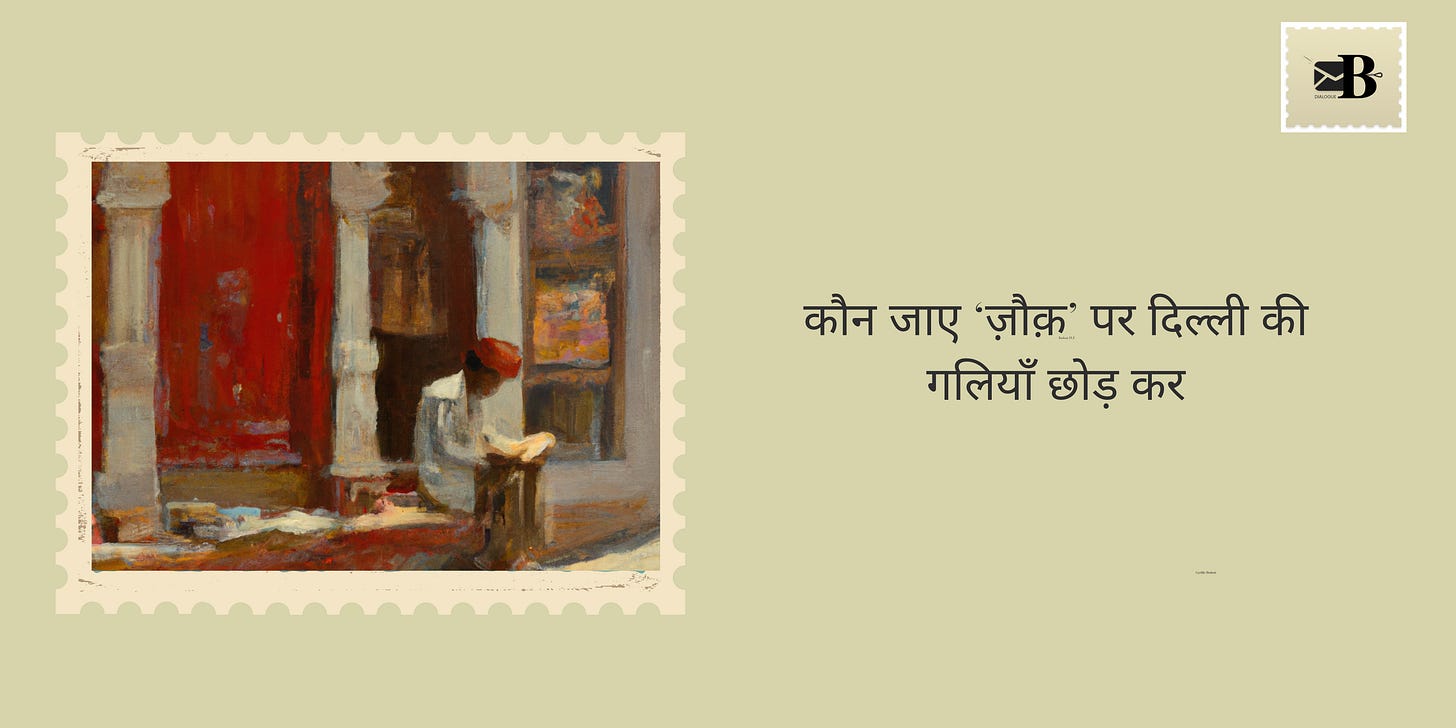Letter #28 Safarnama, Ghantewala Halwai & the 19th Century Old Delhi
Eighteenth-century Urdu poet Mir: It’s just your imagining that There’s a feeble body inside my clothes; In fact, there is nothing there But a mere idea of myself. - Shamsur Rahman Faruqi
Dear Friend,
Healing is an ongoing process that requires consistent effort and dedication. It cannot be achieved overnight or through a single enjoyable evening with friends. Nonetheless, I am grateful that I am currently in the process of healing. One significant step in my healing journey has been rediscovering things that I used to enjoy. While browsing through Bahrisons Booksellers, I recently stumbled upon a book by Amir Khusrau, a 13th-century poet. To my surprise, I found this book as I had previously struggled to locate any works by the poet in English. My habit of reading multiple books simultaneously has been beneficial in my healing process. This is similar to meditation, where focusing on thought can turn it into reality. By reading multiple books, my mind is able to immerse itself in the world that my brain desires. Over the past few days, I have been reading Amir Khusrau’s Ghazals, Diwan-e-Ghalib, and The Mirror of Beauty by Shamsur Rahman Faruqi. Reading these books made me feel like I was in old Delhi during the 18th century, experiencing life as a poet carrying on the legacy of Amir Khusrau.
During the night, my mind often wanders to the bustling streets of old Delhi in the 19th century, where I envision myself as a young poet. As the sun sets on one particular evening, I find myself sitting at Ghantewala Halwai, pen in hand, crafting my Safarnama (Book of Travels).
My Safarnama opens with a memory:
"I remember the taste of this very Sohan Halwa from the time I skipped class in tenth grade back in 2014. One of my friends convinced me to take the metro and go straight to Chandni Chowk. As we wandered through the market, I caught sight of a banner on a nearby shop that read 'Ghantewala - Since 1790.' And now, here I am once again, existing in the same time and space. While browsing the shop, I spotted a young man requesting a box of Sohan Halwa for the emperor. Curiosity piqued, I rose from my seat and approached the man to inquire about the emperor. However, the man became confused by my question and responded with rudeness: 'Shah Alam.'"
I find myself revisiting this particular daydream often, as it has a profound healing effect on me. Although I am unsure of the exact correlation, there is something undeniably special about the old Delhi of the 19th century that speaks to me on a deep level.
I’ll write again, my friend.
Yours,
Bohemian Dialogue.


